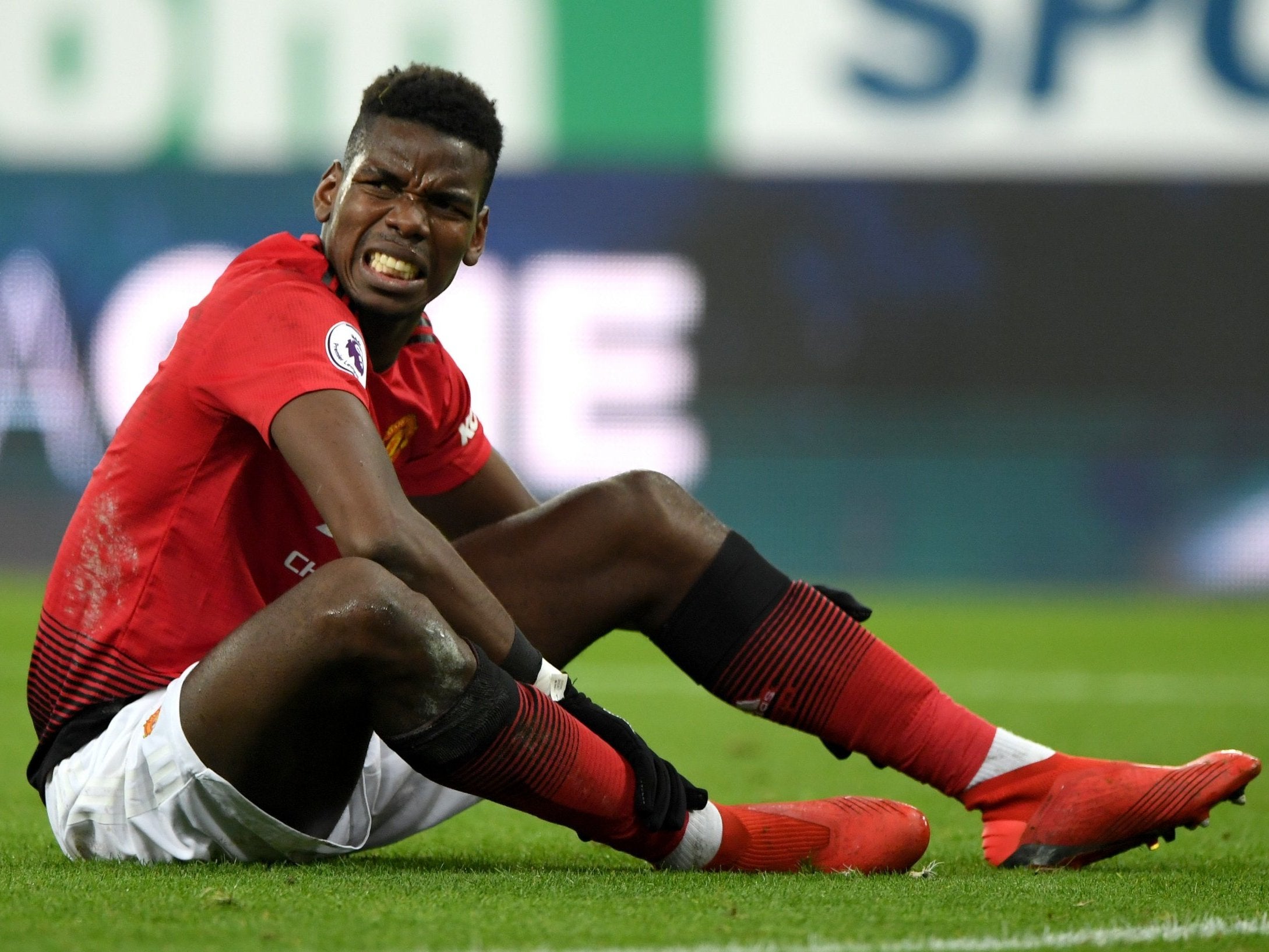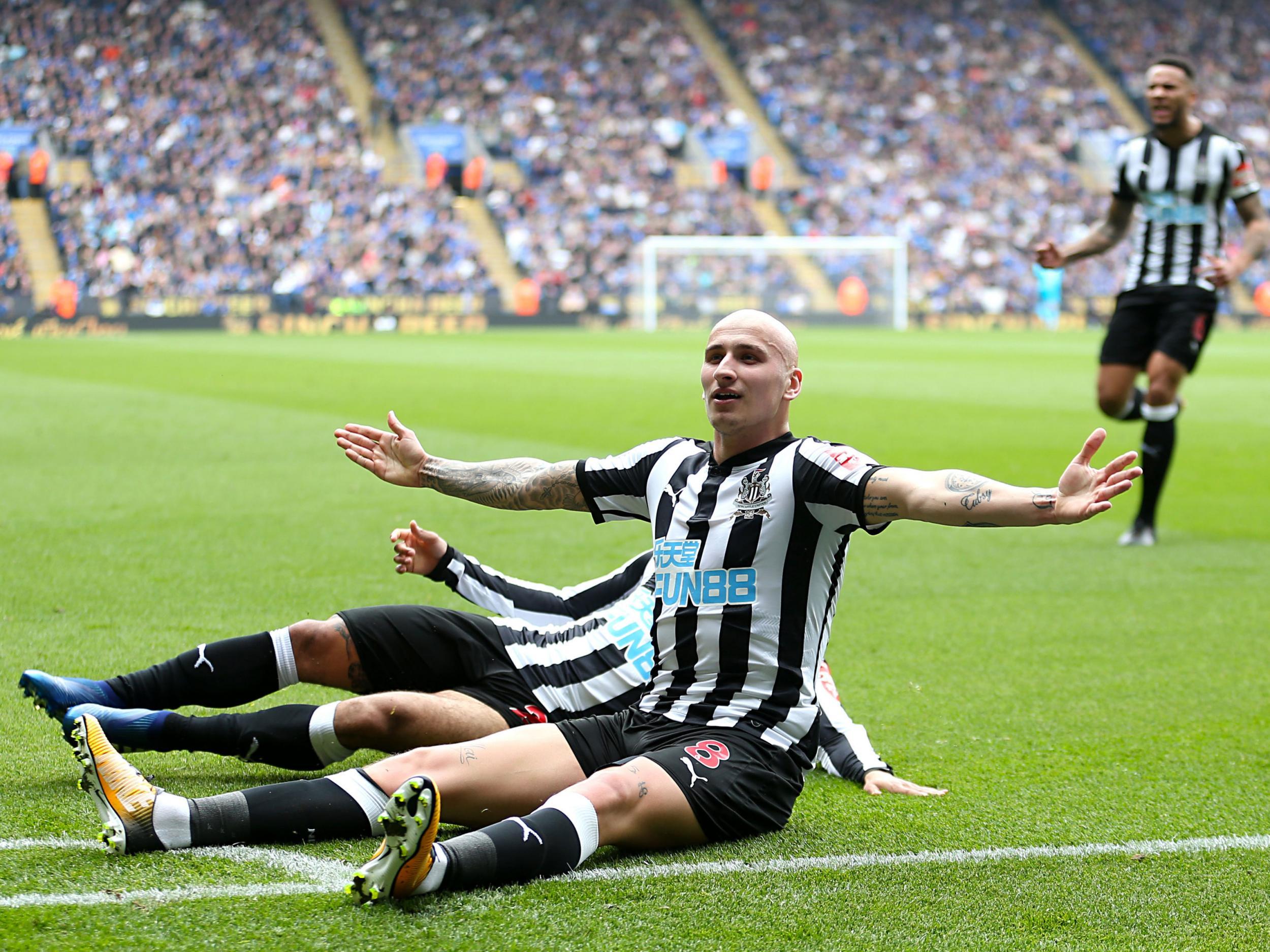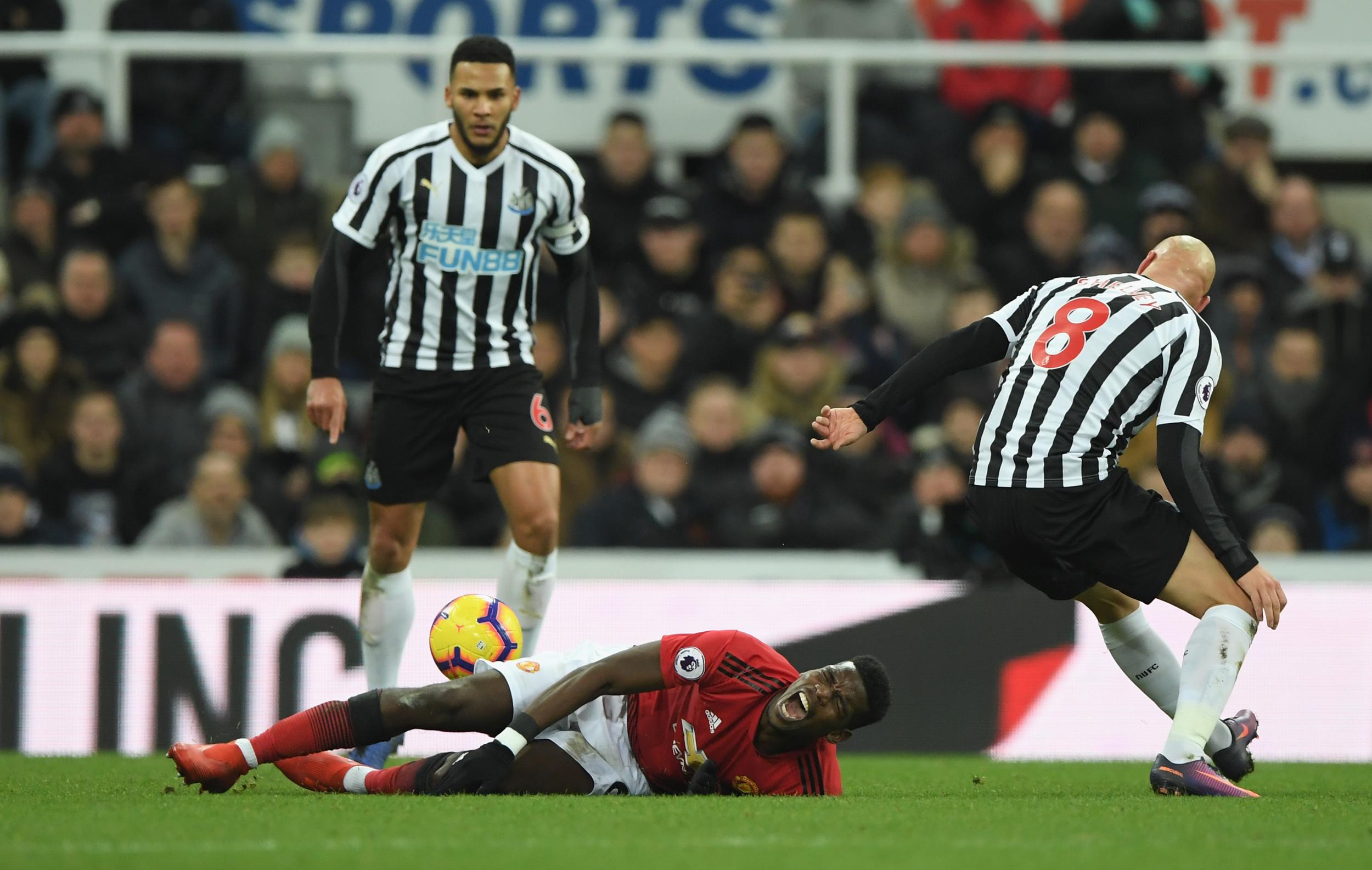Why Jonjo Shelvey might be the single most compelling player in the Premier League right now
In his column this week, Jonathan Liew pays tribute to a misunderstood footballer of elemental joy

Your support helps us to tell the story
From reproductive rights to climate change to Big Tech, The Independent is on the ground when the story is developing. Whether it's investigating the financials of Elon Musk's pro-Trump PAC or producing our latest documentary, 'The A Word', which shines a light on the American women fighting for reproductive rights, we know how important it is to parse out the facts from the messaging.
At such a critical moment in US history, we need reporters on the ground. Your donation allows us to keep sending journalists to speak to both sides of the story.
The Independent is trusted by Americans across the entire political spectrum. And unlike many other quality news outlets, we choose not to lock Americans out of our reporting and analysis with paywalls. We believe quality journalism should be available to everyone, paid for by those who can afford it.
Your support makes all the difference.By the mid-1860s, chemistry was in a state of bafflement. New elements were being discovered at a dizzying rate: caesium in 1860, rubidium and thallium in 1861, indium in 1863. We also knew that certain elements seemed to share common characteristics based on their atomic weight, and that somehow all of them fitted together. What nobody could quite work out - until the emergence of Dmitri Mendeleev - was how.
The genius of Mendeleev’s early periodic table, which he unveiled in 1869, was that there were gaps in it. In a flash of insight he later claimed came to him in a dream, Mendeleev offered up a deeply unorthodox idea: all that was known was not all there was. In other words, there were mysterious, undiscovered new elements still out there, waiting to be slotted into the table. You knew something was missing. But until it appeared, you didn’t quite know what.
A similar air of enigma seemed to grip the middle stages of Newcastle’s game against Manchester United on Wednesday night . As the second half began, the game was still goalless. The visitors hadn’t offered much. The home side had offered even less. For the armchair viewer, pretty much the only reliable source of entertainment was exclaiming “bless you” every time the commentator mentioned Christian Atsu. It was a game with an indefinable void at its core, a gap whose size and shape we couldn’t identify until it was filled. At which point: enter Jonjo Shelvey.
Shelvey’s introduction by Newcastle manager Rafa Benitez eight minutes into the second half proved the turning point of the game in many ways, although it’s not immediately easy to explain why. He didn’t score or assist a goal. He didn’t win the game, and even though Manchester United went on to win 2-0, you couldn’t really say he lost it either. What he offered, instead, was something more nameless and elusive: the unspoken gift of making a game around 75 per cent more interesting by his very presence.
We talk about players who create a buzz when the ball is at their feet. Spectators shuffle forward in their seats just an inch. Pints are supped blind, eyes locked to the screen. Generally, such players are either dribblers, possessed of outrageous natural gifts, or some combination of the two: Neymar, Salah, Sterling, Mbappe, Messi.

Shelvey, on the other hand, transfixes for subtly different reasons. He fills a game like molten lead: defines it, moulds it around him, and not always in the intended ways. In any 10-minute period Shelvey could score, get sent off, play three sumptuous passes, play two abject passes, put a player in hospital, put himself in hospital, bark at the referee, bark at his team-mates, get booked, get arrested, compose and issue a cinquain of Persian poetry, run for elected office, discover wool, or any combination of the above. You just don’t know. And that’s what makes him - and I paused before finishing this sentence, but here goes - quite simply the most compelling player operating in the Premier League today.
There was one pass; and if you were watching the game, you’ll know which pass I mean. He’s just inside the Manchester half, with seemingly nothing on. (No options, rather than no clothes: only with Shelvey, you feel, is such a clarification necessary.) But then he produces this outrageous outside-of-the-boot pass, all along the ground, bending around three Manchester players like a light beam, perfectly into the path of the onrushing Ayoze Perez, who messed up the chance.

All of a sudden, I was being transported: back to the first time I saw Shelvey play, a League One game for Charlton at The Valley almost a decade ago. It might have been Leyton Orient, it might have been Norwich, I’m not exactly sure which. It’s late in the game, Charlton are losing and he’s done nothing all night. And then he gets the ball in a crowded midfield, takes the most cursory of backlifts, and just skims it with the outside of his foot, out towards the left touchline. What I remember above all is the sound: the lush and luxuriant pock! of a football struck to absolute perfection. It’s the sort of sound that makes grown adults weaken a little. There’s a gentle curve to the ball, a low arc, a small murmur of pure appreciation. And as the ball sailed straight over the line and into the crowd, I remember thinking: this kid could be interesting.
These days, regrettably, Shelvey’s reputation is as more of an unrefined thug, a description which is only really half-true. Of course, he doesn’t help himself when he scrapes his studs down the back of Paul Pogba’s calf, as he did on Wednesday night , and for which he was lucky not to be sent off. But then, confrontation - legitimate and not - has always been part of his game. He launched a vicious tirade at Sir Alex Ferguson after being sent off for Liverpool in 2009, an outburst which Ferguson later admitted earned his grudging respect. He openly derided Stuart Pearce’s tactics when he played for England Under-21s. Pogba, Ferguson, Stuart Pearce: say what you like about Shelvey, but he doesn’t pick soft targets.

Granted, at times Shelvey must be a nightmare to play with: witness his skittish, speculative defensive effort for Manchester’s second goal, simultaneously there and not there, hopping and flapping around, convinced that something is happening, but at a total loss as to what, like a penguin in Debenhams. But even as he attracts and occasionally even courts the ire of opposing fans, there’s something weirdly impressive there: the untamed zest of a guy prepared to walk straight into the fire and take his chances therein. There’s a lovely story about his very first away trip with Charlton, when Deon Burton decides to test the callow teenager by despatching him to make the tea. “The day you’re better than me, I’ll make the teas for you,” Shelvey retorts to a shocked bus.
I honestly don’t think there’s any real malice in him: just the slightly clumsy, no-filter innocence of a big kid navigating his way through a big, bad world, the only way he knows how. Even as Pogba lurches at him after having his hamstrings scraped, there’s a kind of wounded, nonplussed air to him, as he glares back at Pogba for having the temerity and carelessness to put his calf where his studs so clearly needed to be.

Perhaps we’re straying into vapid nostalgia here, but it feels like every club used to have this sort of player: a maverick, an oddball, an emotional factotum whose primary function was essentially to make games more interesting.
Occasionally - Harry Redknapp’s late-90s West Ham a prime example - you’d get an entire squad of them. These days, the unpredictable is fettered within predictable patterns: everyone attacks, everyone defends, everyone sprints all the time, everyone is basically a really nice lad, and any character eccentricities are essentially varnished away until retirement, when they can be packaged up, commodified, and deployed on the Soccer AM sofa.
These days, the player who navigates his way through a game by feel rather than tactical plan doesn’t last long, unless they’re incredibly gifted. Shelvey is pretty gifted, and even he occasionally seems to be hanging on. He probably won’t play for an elite club again and, with Gareth Southgate cultivating a really tight group of really nice young lads, he even admitted in a recent interview with The Independent that his medium-term international prospects seem bleak. That said, had Shelvey been in England’s World Cup squad in Russia, you can quite easily imagine the inflatable unicorn race descending into farce, with Shelvey’s uncurbed competitive instincts resulting in one disqualification, a minor fracas and three deaths by drowning.
In any case, you feel some careers are destined to be measured not by achievement, not by awards or accolades or by precious metal. In a game of exhaustive empiricism and known knowns, Shelvey offers something rarer, more intangible and somehow more special as a result. Neither solid, nor liquid, nor gas: just pure, brilliant, undiluted Jonjo.
Join our commenting forum
Join thought-provoking conversations, follow other Independent readers and see their replies
Comments